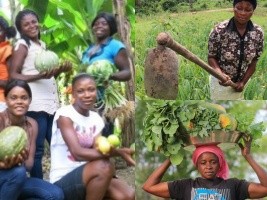In a groundbreaking revelation, Haiti’s Minister of Agriculture, Vernet Joseph, alongside Pierre Vauthier, the Representative of the Food and Agriculture Organization of the United Nations (FAO – Haiti), disclosed that more than 70% of the nation’s farmers are women. These women, who form the backbone of Haiti’s agrifood production, continue to face substantial challenges, including limited access to land, credit, and quality supply chains. Their critical role in sustaining the country’s food systems cannot be overstated. The recent International Day of Rural Women underscored the necessity of concrete actions to fully integrate this female workforce into the agricultural sector, particularly by empowering the ‘Madan Sara,’ the unsung heroes of Haiti’s food distribution networks. The Ministry of Agriculture, Natural Resources, and Rural Development (MARNDR), in collaboration with FAO – Haiti, is actively working to transform this potential into a driving force for economic and social development. In 2025, FAO initiatives, supported by MARNDR, directly assisted nearly 70,000 individuals dependent on agriculture, helping to preserve and revitalize production in regions like Artibonite, the Central Bas-Plateau, and the West, even amidst security challenges. Additionally, the National School Feeding Program (PNCS), backed by the Ministry and the World Food Program (WFP), has engaged over 82,500 small producers across 219 agricultural organizations. These efforts ensure that 70% of meals served daily to 600,000 schoolchildren supported by WFP are sourced from Haitian agriculture, enhancing children’s nutrition and stimulating the local economy. This initiative aligns with the government’s broader goal of reaching 1.4 million students by 2025 and achieving 100% local procurement for school canteens by 2030. Furthermore, the Integrated Nutrition and Local Purchasing Program, initially funded with US$10 million, is expanding to other departments with an additional US$13 million, enabling more producers to contribute to the promotion of national production.
